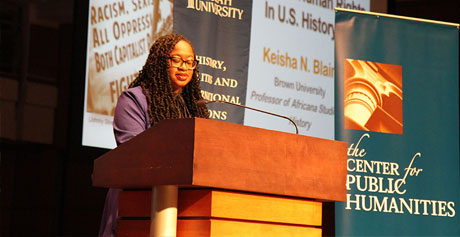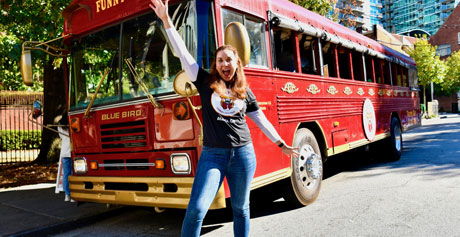Meet Atlanta Attorney, Christina Baugh, President for the Diverse Interests of Women Lawyers in Georgia
She Proudly Serves as President for the Diverse Interests of Women Lawyers in Georgia & Has Earned the Respect of Her Peers as One of the Top-Rated Attorneys in the Nation!
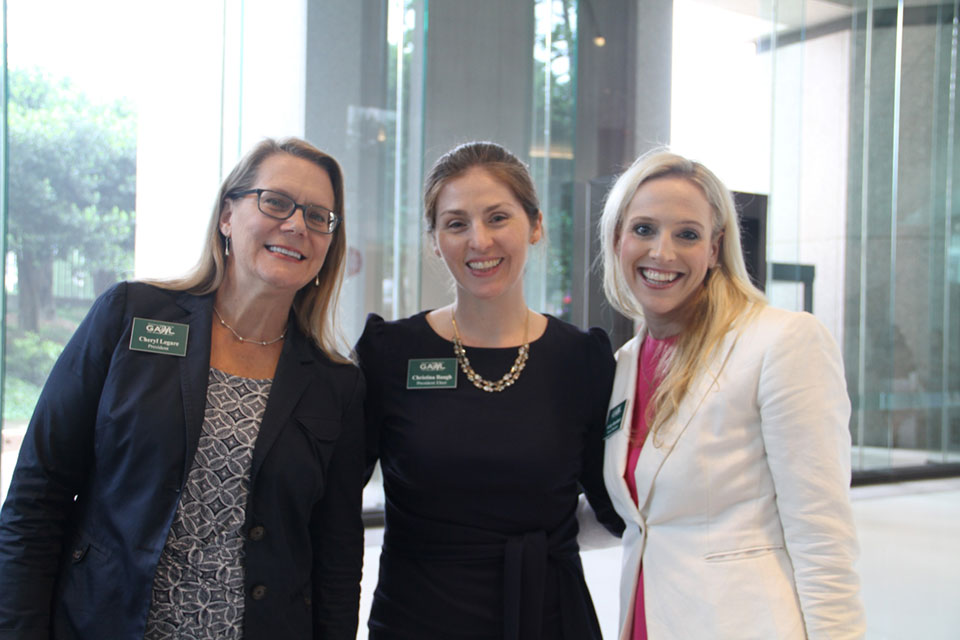
Q: After high school, where did you feel your career path would take you?
CB: After high school, as I made it to college, I thought I was going to proceed to medical school, to be a pediatric cardiovascular surgeon. However, I only turned toward law school during my final semester in college as I learned more about how doctors chose their specialties (or the other way around).
Q: What was your first job? And how did it shape or impact you?
CB: I’ve worked at least part time since I was 12 years old. My very first job was as a gymnastics instructor for a recreational gymnastics class in Maryland, where I grew up. It made it easy for me to learn how to deconstruct actions that seemed natural to me into steps that could be explained to someone else. I also had to learn how to take command of a class and garner respect even though some of the students were my age, taller, or bigger in size. The skills necessary to teach and lead are skills that have helped me through my career at all stages.
Q: What expectations did you have after graduating and receiving your law degree?
CB: The summer after graduating law school, most people, myself included, often spend the summer “studying” for the bar exam. Inevitably, the level of dedication to those studies intensifies as the summer comes to a close and the date for the bar exam gets nearer. My expectations at the time were to study, take and pass the bar exam, and start working for the law firm which had made me an offer. I don’t recall having thought much beyond that at the time, or perhaps I didn’t want to allow myself to focus much beyond that at the time.
Q: What type of cases do you generally handle?
CB: I handle a broad range of cases within business or commercial litigation, including intellectual property litigation. These include cases such as disputes between business partners or shareholders, disputes between business over contracts or torts, disputes revolving around the ownership of intellectual property (such as a book, piece of art, movie, or a trade name), disputes around employees leaving employers, and many others. Oftentimes, I do not get involved until the lawsuit is actually filed or about to be filed, but when a case is brought in earlier, I assist clients in figuring out business resolutions to any given dispute without necessarily having to pass through the rigors of litigation.
Q: You’re currently President of the Georgia Association for Women Lawyers. For those in our audience, who may not be familiar with the organization, can you tell us about the work they do and your duties as President?
CB: The Georgia Association for Women Lawyers (“GAWL”) is a professional organization of women lawyers and our allies, with the aim of promoting the interests of women lawyers in Georgia. We work to advance the practices of women lawyers in Georgia starting from the very beginning of each member’s individual career. We have law student members who begin building connections that provide them with mentors, connections, sources for advice, and more. Newly barred attorneys can apply for the GAWLedu program which is an intensive program providing training and leadership opportunities to members with less than 3 years of experience. For those with 6 or more years of experience, we have the Leadership Academy to help members figure out how they want to shape their careers once they get past the initial learning years. GAWL also provides mentoring circles that are closed groups which meet monthly, neighborhood networking breakfasts or lunches (NNB/NNL) which are open groups that meet monthly at set locations, programs offering substantive training or learning, the Leader Within program which provides a half day training on a substantive topic usually held in February. Annual events include the Annual Dinner in May, the kick-off party in the fall, Judicial Luncheon usually in October, and holiday parties in December. We have Chapters across the State in Columbus, Douglas-Paulding, Middle-Georgia, Valdosta, Tifton, Savannah, Blue Ridge, and a John Marshal Law School Chapter, which are doing extraordinary work.
As the President, I work with the members of the Board to ensure that GAWL is meeting the needs of its members. Although, I provide direction for the organization, but majority of the work is done by our volunteer Board and committee members. As Board members are working on their specific roles in the organization, I help members for a more effective and efficient operation. To do so, I have to be adequately informed as to what everyone is working on so that I can spot issues or help figure out pairings or collaboration points. I also work to foster connections with other bar organizations across the state. The role is very similar in nature to how a business is managed.
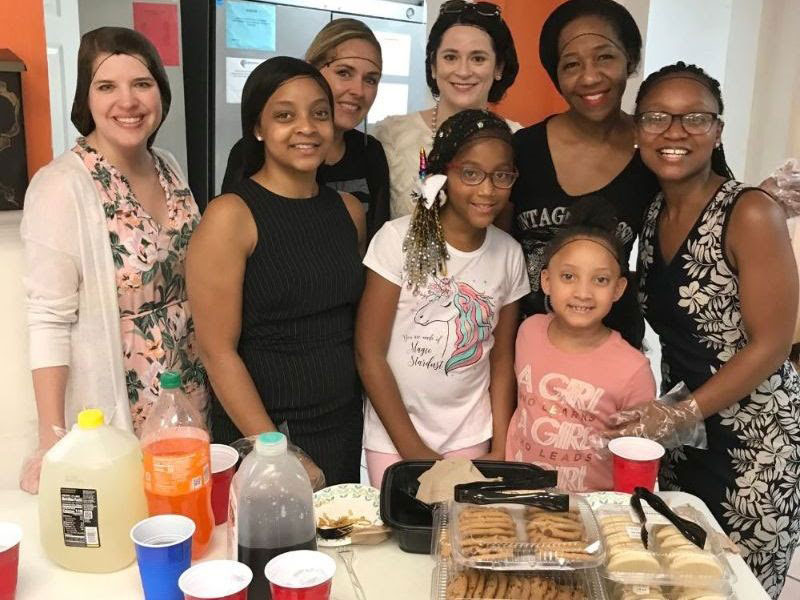
Q: What are some of the benefits in being a member of GAWL?
CB: As with most professional organizations, the benefit of being a member is what you make of it. If someone just registers and never engages, then there is little benefit. For those who become engaged, even on a casual basis, there are many potential benefits. With the different facets of GAWL, there are a large number of leadership opportunities with a relatively low barrier to entry. If someone wants to grow their leadership skills, GAWL has opportunities for that. There are opportunities for formal and informal mentoring for every stage of the career—from the very beginning to closing up shop and retiring. GAWL has many training opportunities for the ability to satisfy required CLE or for helping members to build skills to explore more. Perhaps above all else, GAWL helps build connections. Those connections can be used for business development, referral sources, or friendships. I refer matters to other GAWL members on a regular basis and have likewise received referrals due to the connections I’ve made through GAWL. And friendships it has helped to foster among members should not be discounted. The practice of law as a career can lead to a hard lifestyle, but it is one that can be made far more pleasant with friends who understand what you are going through and who support you along the way.
Q: Can you share with our audience the mission of the GAWL Foundation and how it benefits our community?
CB: The GAWL Foundation’s mission is to encourage philanthropy by women lawyers in Georgia for the greater benefit of the entire community. The Foundation provides community service opportunities throughout the year, including serving dinner monthly at the Nicholas House and a week-long GAWL Severs To-get-Her promotion of community service. The Foundation provides grants to nonprofits providing services and support to women and children in the legal system. Some recent grant recipients are: Sexual Assault Center of Northwest Georgia, HOPE Atlanta, and Girl Talk. The Foundation also provides scholarships to accomplished and impressive women lawyers who have shown a dedication to helping others through their practice, which may include working in public service or for a nonprofit after graduation. The Foundation recently teamed up with The Metro Transitional Center to help provide basic training on legal issues to women who are in the criminal justice system and are about to reenter the general population. For instance, information relating to domestic issues or starting a business can also be passed across. Through the many opportunities created through the Foundation, our members have opportunities to give back to the community around them, whether in a legal-related role or through a traditional community service opportunity. The Foundation also ensures that women entering the legal profession, who have shown a dedication to giving back to the community, are given financial support as they make the transition from law school to practitioner through the award of scholarships.
Q: What advice would you give to young women who want to pursue a career as an Attorney?
CB: The practice of law is quite a demanding, challenging, and sometimes draining profession. However, with a strong support base, quality training and resources, it can be a fulfilling, rewarding, and amazing profession. At each stage, it is important to make sure your support is strong. Support from friends and family is imperative, but you also need to find support from others in the legal field. Those supportive people should include peers and as well as attorneys at other stages. Build friendships and connections in law school. Get to know your professors and attorneys you meet through internships and bar participation. When you are first starting your practice, maintain the connections you’ve already made—don’t recreate the wheel or lose the connections you have fostered, but expand your reach even more. As you become more experienced, make sure you build connections with those less experienced than you as well. The importance of these connections goes beyond helping you to get a job or changing jobs. They can also help you to build your business, find vendors who are worth their salt, consider the next steps for your career, run campaigns or place yard signs, celebrate wins, be a sounding board, avoid pitfalls, and simply help you maintain some semblance of mental sanity when things are tough.
Q: What's the greatest fear you've had to overcome to get where you are today?
CB: Probably something akin to the “Impostor Syndrome.” As a woman commercial litigator, sadly, I did not have very many women commercial litigators ahead of me to observe. I want to be clear—I am not saying there were none. There are some phenomenal women commercial litigators ahead of me, but that is almost the problem itself. There were, and still are, a relatively small percentage component of the field who are women. But those women who are commercial litigators tend to be rock stars. This tends to give credence to the belief that the only way to thrive as a woman in the commercial litigation field is to be a rock star and any mistake or even mediocre attribute may mean the end of a career. Particularly as a younger attorney, and often the only woman in the room, it could result in a fear that questions or advice would sound “stupid” or worse yet, someone follows the advice and it doesn’t turn out well. Would I get a second chance? Would the others in the room ever let another woman participate if I failed? Even just recognizing that I was having these thoughts and realizing that they are not often held by male attorneys helped me to move past them for the most part. As the legal community works to improve its diversity and inclusion, I hope that fewer attorneys will have the same fears since they would have had an opportunity to witness a broader range of attorneys.
Q: What’s one lesson you’ve learned in your career that you can share with our audience?
CB: If you don’t ask, the answer will always be “no.” Oftentimes people don’t want to ask for fear that the answer will be “no.” But if you don’t ask, the answer will always be “no.”
Q: Can you tell our audience one of the most memorable moments of your career?
CB: In my third or fourth year of practice, I had my first oral argument before the Georgia Court of Appeals. It was a relatively simple factual situation but had limited legal precedent even though it arose out of a highly regulated area of the law. Arguments were limited to 15 minutes on each side. Arguably, I had “over” prepared for oral argument (although, I’m not sure you can over prepare), but during my argument, when barrage of questions were thrown at me from the bench, I had answers ready, complete with case citations. It seemed fluid and powerful. On the short drive back to the office, I went through all of the questions and answers in my head, thinking of how I could have answered better. But after reading the opinion, months later, affirming my position and seeing that my preparation for oral argument helped secure the win for the client, only further validated my belief that you cannot over prepare for oral argument.
Q: Which woman inspires you and why?
CB: It would be unfair for me to identify just ONE woman that inspires me. I am inspired by all of the women around me. Every woman has her own story of the people who didn’t believe in her, the people who said she couldn’t do it, and the people who actively tried to stop her from succeeding. Those same women also have stories of the people who believed she could do it, who proclaimed from the mountaintops that she could do it, and who actively worked to support her in her efforts. Every one of us has an inspirational story behind our success.
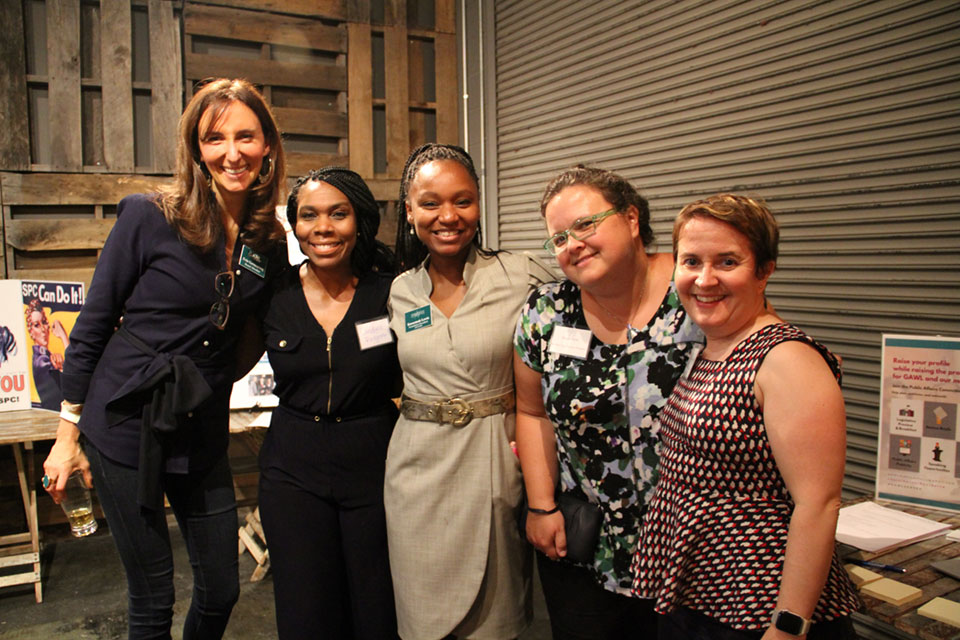
Q: What are some of the challenges you feel women face today?
CB: Women still face challenges inflicted by perceived norms and the double standards created by those norms such as; what a leader looks like, how a leader acts, what a woman looks like, how a woman acts. Women are told they don’t earn as much as men because we do not negotiate our salaries, but studies have shown that women who try to negotiate are seen in a negative light. Women are told that leaders are assertive and decisive, but if women exhibit those traits they are seen as bossy or even worse. Similar scenario equally occur among children in school, where girls are expected to raise their hands and wait to be called on, while boys on the other hand, could shout out the answers and are praised for paying enough attention and for knowing the answer, but if a girl calls out, she is scolded and told to raise her hand. We need to do a better job of recognizing that we are applying double standards, because we cannot move past them if we do not acknowledge that such issues actually exist.
Five Things about Attorney, Christina Baugh
1. If you could talk to one famous person past or present, who would it be and why?
I would like to talk with Greta Thunberg. It is fantastic to see someone who is so young yet so passionate for a cause that is so great in enormity.
2. Where’s your dream vacation?
I enjoy taking active vacations off the grid. Often times, these vacations involve hiking or backpacking, which enables me to experience parts of the world to which most people never venture. As my kids get older, I am excited to take more trips to explore the national parks and reserves.
3. Favorite dessert?
Quality vanilla ice cream.
4. What app can’t you live without?
One or more of my sports/running apps—I love being able to break down my workouts and match the perceived effort with the quantifiable data.
5. How do you maintain a work life balance?
This question has a flawed premise. ☺ Getting anywhere close to “balanced” requires a constant evaluation of priorities. Being physically active is important to me, so I get up ridiculously early to go to the gym at 5 am every weekday because waiting until after work resulted in frequent missed workouts. Family is important to me, so I try to be present with them when I am home—quality over quantity. For work and work related activities, I am getting better at not saying “yes” to everything. By saying “no” sometimes, I ensure I have more time and energy to do a better job at the things to which I say “yes.”
